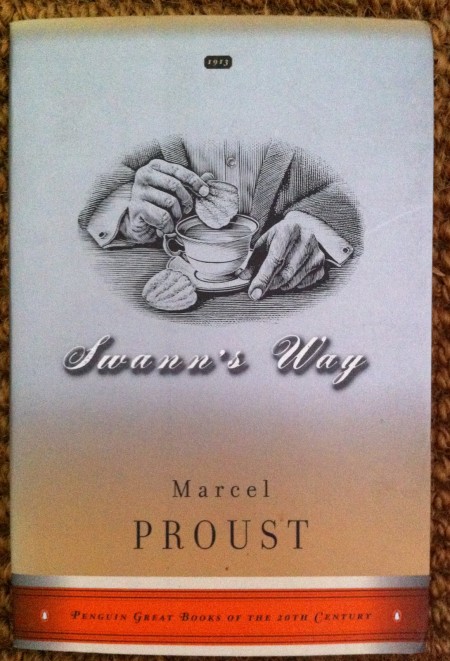
 I know better than to invite a Swedish detective into my life in the winter, especially this winter. Kurt Wallander is one year younger than me. He rides in the passenger seat beside me because he exists within the book The Troubled Man*. He is losing his memory and experiencing shooting pains in his left arm and on the left side of his chest. The great love of his life, terminally ill, purposely drives into a stone wall. He cannot stop himself from imagining his own disappearance from life. Midway through the book, he is lonely and unkempt in the way old men sometimes become, except that he is only 60, and he lives in Sweden, which has a great health care safety net, and he is still very good at his job, unraveling mysteries and catching murderers. So I offer him advice – Shut_up! being the boiled down version. But if he shut up, there would be no fellow traveler for there would be no book; I am his confidant, as are all who read or listen to the novel. He has no one else to tell, so he tells me, and the Shut Up I offer is pretty much completely dishonest for at 61 I too think about loss and the end.
I know better than to invite a Swedish detective into my life in the winter, especially this winter. Kurt Wallander is one year younger than me. He rides in the passenger seat beside me because he exists within the book The Troubled Man*. He is losing his memory and experiencing shooting pains in his left arm and on the left side of his chest. The great love of his life, terminally ill, purposely drives into a stone wall. He cannot stop himself from imagining his own disappearance from life. Midway through the book, he is lonely and unkempt in the way old men sometimes become, except that he is only 60, and he lives in Sweden, which has a great health care safety net, and he is still very good at his job, unraveling mysteries and catching murderers. So I offer him advice – Shut_up! being the boiled down version. But if he shut up, there would be no fellow traveler for there would be no book; I am his confidant, as are all who read or listen to the novel. He has no one else to tell, so he tells me, and the Shut Up I offer is pretty much completely dishonest for at 61 I too think about loss and the end.
Annie Dillard** first showed me, 38 years ago when I was an immortal 23, that the deal is fair – we get to live for a while and then, because nothing in nature is immortal, we die and our atoms are remade into new life. Philosophically, I say good. Realistically, I whisper, “Say, wait a minute….” My heart stops, the one under my breast where my right hand, this moment, can feel its tha-thump tha-thump? My hands and arms and shoulders, the ones employed in throwing shovelful after shovelful of snow into the air just yesterday – those come to a dead-weight rest, and end up folded like fleshy sticks over my chest? My legs fold under me and my body drops to the floor, all akimbo and confused and immobile in an impossible pose? My eyes fail, they go dark, and the world goes dark and silent, and all my memories disappear? That seems too personal. Sweet, kind Michael? Oh no, not merry, thorough Michael? Yes.
May I negotiate?
With whom?
Death is personal and irrevocable. So … what to do? How to live, especially while accelerating past 60?
First, I worry about what I can imagine, and I cannot imagine not existing except through visions that always take an impossible perspective. For example, even dead, I somehow still watch individuals weep (or laugh) at my memorial service. I am the one still doing the processing. A ghost is a consciousness and remains of the world in some limited way.
I can imagine a physical decline, and I wrote a long sentence describing one version of that decay … and then erased it. No need to keep that image in my head or yours. We have seen how it works. That is enough.
I know that whatever I have accomplished in my life is just that, an event in the past tense, and therefore not relevant to the years left to me. There is more to do. There is more to see. There is more to figure out. I know that a loss of curiosity is a more serious death to me than the big one. I have not read Proust yet. I have a three foot stack of books waiting for me. I have not seen the Dakotas or the Sand Hills of Nebraska. I have friends I have not seen in years who I want to visit. I have not yet learned how to set a fence, speak French, build a house.
Not that any of that matters for as the Gospels tell us we do not know the time or place when all of this ends. In my favorite speech from Hamlet, he comes to this conclusion and offers his best advice: “Let be.”
I think we are left with a paradoxical path — act as if each moment is everything, and act as if we have years upon years to pursue that which is good and that which astonishes us. Keep roaming forward. Enjoy the woods in the snow, again. Value that which passes before your gaze … now. In your mind’s eye, decide how you will plant tomatoes this year for a more succulent crop. Begin Swann’s Way#: “For a long time I would go to bed early.” Go on, even when you are tired. Stop to talk to strangers, but pipe down about the miseries you know are trifling. Let be.
I will endeavor to follow my own advice.
Find a way to read this piece by Roger Angell in The New Yorker on the same subject — except that he is 93 and one of this country’s most remarkable writers: tp://www.newyorker.com/reporting/2014/02/17/140217fa_fact_angell
He composed the single most joyous sentence I have ever read; a description of Carlton Fisk’s home run to win the 6th game of the 1975 World series: From his essay “Agincourt and After” in the book Five Seasons: http://www.amazon.com/Five-Seasons-A-Baseball-Companion/dp/0803259506
*The Troubled Man: http://www.amazon.com/The-Troubled-Man-Henning-Mankell/dp/0307477401 I listened to it on CD.
**Annie Dillard: http://www.anniedillard.com/ From her book Pilgrim at Tinker Creek: http://www.anniedillard.com/books-annie-dillard.html
#Swann’s Way: http://www.barnesandnoble.com/w/swanns-way-marcel-proust/1007393900?ean=9780142437964